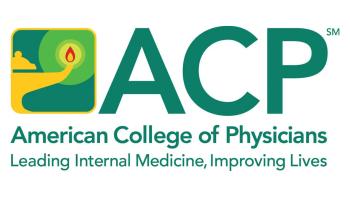
Study Supports Short Course of Antibiotics for cUTI After Kidney Transplant
A new study in Israel supports the use of a shorter course of antibiotics for the treatment of complicated urinary tract infection in recipients of kidney transplants.
Investigators in Israel found no differences in clinical outcomes between short-course and long-course antibiotics for treating complicated urinary tract infection in kidney transplant recipients.
The retrospective study, published in
“We believe that the biggest takeaway is that a short course antibiotic (6-10 days) was not associated with a worse clinical outcome compared to a longer course antibiotic for the treatment of complicated UTI in kidney transplanted recipients,” Hefziba Green, MD, of B Rabin Medical Center told Contagion. “As this is a retrospective cohort study, the research has its limitations, thus a clear recommendation for a short-course cannot be given based only on our results. However, our results suggest that a short-course may be safe and effective. This joins previous works that have raised awareness to the importance of antibiotic stewardship interventions, which shortening the duration of courses is one of them.”
UTI is the most common infection after kidney transplantation, the authors noted, and the emergence of drug-resistant pathogens has increased awareness of the importance of antibiotic stewardship, with many studies evaluating the duration of antibiotic treatment for infections.
Among the participants, who were admitted with cUTI between January 2011 and July 2019, 115 received a short course of antibiotics for 6 to 9 days and 99 received a long course for 12 to 21 days. Duration was determined by the treating physician with no written protocol to guide how long to treat infection within the accepted duration of 6 to 21 days. Those who received antibiotics for less than 6 days or more than 21 days were excluded from the study.
Primary outcomes were a composite of all-cause mortality or readmission within 30 days and relapse of UTI within 180 days. Investigators performed univariate and inverse probability treatment weighted adjusted multivariate analysis.
No association was found between length of antibiotic treatment and primary outcomes. The investigators also reported no difference between the two groups in length of hospital stay, rates of bacteremia, resistance development or serum creatinine at 30 and 90 days.
“We did not expect to find such lowers rates of clostridium difficile in both groups,” Green said.
Among those in the short-course group, the composite outcome was experienced in 33 (28.6%), compared with 30 (30%) in the long-course group. UTI relapse was reported in 19 (16.5%) participants in the short-course group compared with21 (21%).
The most common bacteria were Enterobacterales, isolated in 185 (86.4%) of cases.
“We want to raise the awareness of clinicians for the importance of antibiotic stewardship and tailored therapy,” Green said. “According to current guidelines, antibiotic therapy should be given for a duration of 14-21 days, but this is not based on evidence-based data. We think clinicians should consider each case to its own merits, and maybe give a short-course in certain cases.”
Next steps include performing a large-scale randomized controlled trial to examine the efficacy of short-course versus long-course antibiotic therapy for complicated UTI in kidney transplant recipients.
Complicated UTIs affect more than 100 million people globally each year and cost the U.S. health system more than $6 billion annually, according to a
Newsletter
Stay ahead of emerging infectious disease threats with expert insights and breaking research. Subscribe now to get updates delivered straight to your inbox.































































































































